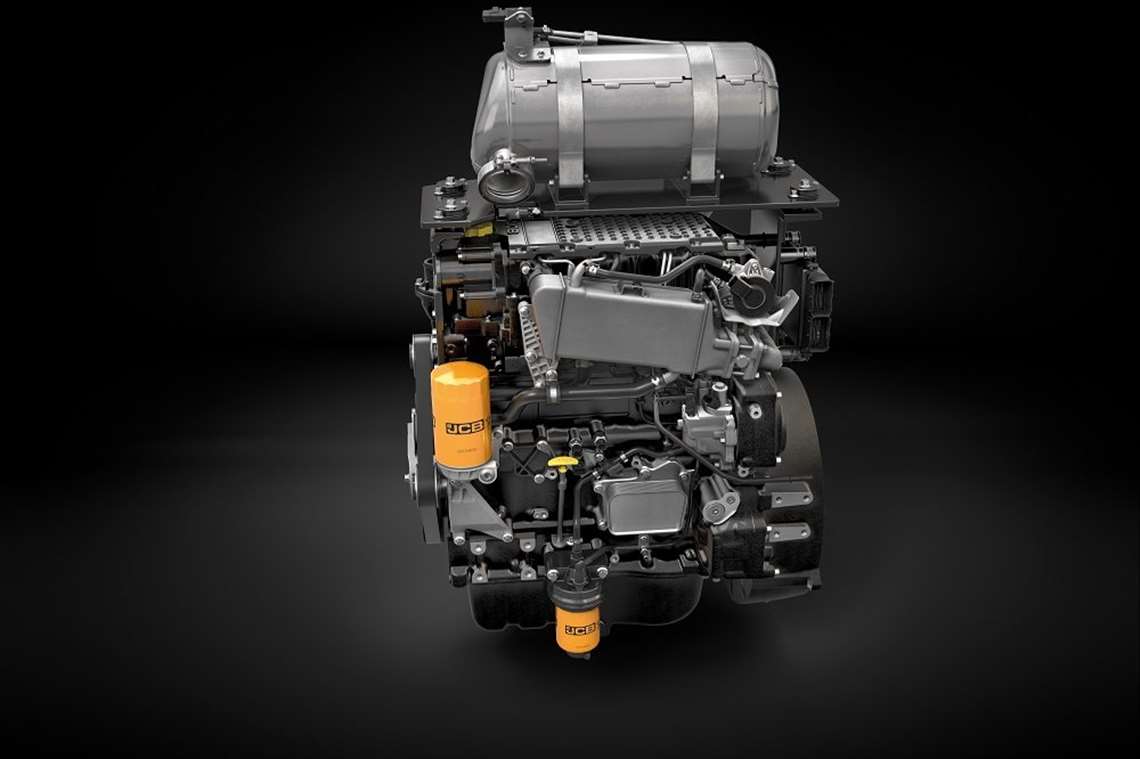JCB Unveils Stage 5 Strategy
13 March 2018

BY IAN CAMERON
Announcing that the company is ready for the EU Stage 5 exhaust emissions standards, JCB Power Systems has unveiled its strategy to meet the regulations which come into force in 2019 and 2020.
The company, based in Foston, Derbyshire, England, said it will use a combination of next generation particulate control technology, incorporating diesel oxidation catalysts (DOC), integrated diesel particulate filters (DPF) and selective catalytic reduction (SCR) to meet the Stage 5 regulations.
JCB Power Systems said it starts from a position of strength, having developed efficient combustion technologies within its engine ranges. All Stage 5 engines have been designed to fit beneath existing engine canopies and will not require machine redesigns, the company added.
“JCB engines have low emission, high efficiency combustion systems developed for Stage 3b and Tier 4,” said Alan Tolley, JCB’s group director of Engines. “This means that we started development for Stage 5 from a good position.
“JCB’s particulate control technology features low particulate combustion, oxidation catalyst, filter and integrated engine and regeneration control system. It’s been designed to be a completely integrated system that’s highly reliable, highly effective and invisible to the customer. These are compact systems that are installed within our existing machines’ engine bays. In operation, they require no operator intervention or additional service attention.”
JCB’s 3 L Dieselmax 430 engine will continue to provide an output of 55 kW (74 hp) and 410 Nm (302 lb. ft.) of torque. The engine will benefit from the addition of an electronic wastegate turbocharger and a compact DOC and filter system, the company said.
The new 3 L engine will feature auto-stop technology and up to 1000-hour service intervals, reducing operating costs for customers, the company added.
“At 55 kW the JCB 430 Dieselmax engine, equipped with JCB’s new integrated particulate control technology, will be used in many of JCB’s mid-range machines,” Tolley said. “This new highly efficient, high torque engine will offer cost of ownership benefits to our customers, with lower fuel consumption, extended service intervals and auto-stop technologies.”
The company’s 4.8 L engine, which produces 81 to 129 kW (108 to 173 hp) and has torque outputs of 516 Nm to 690 Nm (380 to 509 lb. ft.), incorporates a compact aftertreatment system using JCB’s particulate control technology with an SCR filter. This engine also benefits from the adoption of a wastegate turbocharger and auto-stop technology to reduce fuel consumption, the company said.
“At 81 to 129 kW, the JCB 448 engines, fitted with JCB’s new combined particulate control and NOx reduction technology, will be used in JCB’s excavators and loading shovels, as well as backhoe loaders, Loadalls and in other applications,” Tolley said.
The new Stage 5 standards will come into force on Jan. 1, 2019, for engines below 56 kW and above 130 kW. They will take effect a year later, on Jan. 1, 2020, for engines in the 56 to 129 kW range.
STAY CONNECTED




Receive the information you need when you need it through our world-leading magazines, newsletters and daily briefings.
POWER SOURCING GUIDE
The trusted reference and buyer’s guide for 83 years
The original “desktop search engine,” guiding nearly 10,000 users in more than 90 countries it is the primary reference for specifications and details on all the components that go into engine systems.
Visit Now
CONNECT WITH THE TEAM









